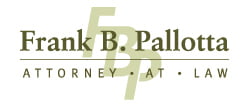Homeowners’ associations (HOAs) play a crucial role in maintaining a community’s quality and standards. However, for many homeowners, understanding and navigating the rules and regulations set by an HOA can be overwhelming. It’s important to remember that this understanding not only puts you in control of your living situation but also empowers you, instilling a sense of confidence to make informed decisions.
Over the years, homeowners have come to me with questions about their rights, obligations, and the role of the HOA. My goal is to provide not just guidance but also the necessary support.
With this in mind, let’s explore some of the most frequently asked questions about HOAs and how a real estate lawyer can help residents and HOA communities in creating and enforcing their covenants.
What exactly is an HOA, and what authority does it have?
An HOA is a governing body that manages a residential community, also known as a subdivision. Its authority is derived from legally binding documents known as covenants, conditions, and restrictions (CC&Rs). All homeowners agree to these CC&Rs when they purchase a property within the community, giving the HOA the power to enforce rules, levy fines, and even place property liens if necessary.
Generally speaking, these covenants are written and recorded by the developer of the community before the first lots are sold to the builders. However, covenants are frequently amended and restated over the timeline to develop or finish a subdivision.
How a Real Estate Attorney Can Help: A real estate lawyer is a key player in HOA matters. They can assist HOAs in drafting and reviewing CC&Rs to ensure they are legally enforceable and compliant with state and local laws. Additionally, they can aid in resolving disputes between homeowners and the HOA, offering professional support when necessary.
When advising homeowners and associations, we believe it’s crucial to read these documents in their entirety to determine the owners’ and associations’ rights and responsibilities.
Can the HOA really tell me what I can and cannot do with my property?
Yes, the HOA has the authority to regulate certain aspects of property use, as outlined in the CC&Rs. This can include restrictions on exterior modifications, landscaping, and even the color of your home. While these rules may seem restrictive, they’re designed to maintain the community’s aesthetic and property values.
However, some covenants expire on their own, while some renew automatically, so it depends on when they were first published as to which laws apply to them. Some older covenants don’t have mandatory membership.
How a Real Estate Attorney Can Help: If you feel the HOA is overstepping its bounds or enforcing rules inconsistently, a real estate attorney can review the latest version of your community’s CC&Rs and determine if the HOA’s actions are legally justified. More importantly, they can represent you in negotiations or legal proceedings, providing professional support when needed. This could be in cases of property modifications, landscaping, or even the color of your home.
What can I do if I disagree with a decision made by the HOA?
If you disagree with an HOA decision, you have the right to appeal or request a hearing. Many HOAs have a formal process for handling disputes, which may involve presenting your case before the board or a designated committee. Following the proper procedures is important to ensure your complaint is heard and taken seriously. Failure to do so could result in your complaint being dismissed or not given due consideration.
A real estate lawyer can guide you through the dispute resolution process, help you prepare your case, and present it to the HOA board. They can also advise you on alternative options, such as mediation or arbitration.
What happens if I don’t pay my HOA dues?
Failing to pay your HOA dues can have serious consequences. The HOA can impose fines, suspend your access to community amenities, and even place a lien on your property. In extreme cases, the HOA may initiate foreclosure proceedings to recover the unpaid dues.
How a Real Estate Attorney Can Help: If you’re facing financial difficulties and can’t pay your HOA dues, a real estate lawyer can negotiate with the HOA to arrange a payment plan or explore other options to avoid penalties.
Can the HOA force me to make repairs to my property?
Yes, the HOA can require homeowners to make necessary repairs to their properties to comply with community standards. This could include repairing a damaged roof, painting the exterior, or maintaining your lawn. If you fail to make the required repairs, the HOA may hire a contractor to do the work and bill you for the cost.
How a Real Estate Attorney Can Help: If you believe the HOA’s repair demands are unreasonable or unfair, a real estate lawyer can review the CC&Rs and determine if the HOA’s actions are within their legal rights. They can also assist in negotiating a fair resolution.
How can a real estate attorney assist HOAs in creating and enforcing covenants?
A real estate attorney plays a vital role in helping HOAs create, amend, and enforce covenants. They ensure that the covenants are legally sound and enforceable, provide guidance on compliance with state and local laws, and assist in resolving possible disputes. Attorneys can also represent the HOA in legal actions against homeowners who violate the covenants, ensuring that the community’s standards are upheld.
Understanding Your Rights and Obligations Within an HOA
Understanding your rights and obligations within an HOA is crucial for maintaining a harmonious community. As a real estate attorney, I aim to help homeowners and HOAs navigate these complex issues, ensuring everyone’s interests are protected.
Whether you’re dealing with a dispute, facing enforcement actions, or simply seeking clarification on your HOA’s rules, remember that a real estate lawyer can provide the expertise and guidance you need. Seeking legal support is not just an option, but a crucial step in ensuring you are well-informed and prepared when dealing with HOA-related issues.

